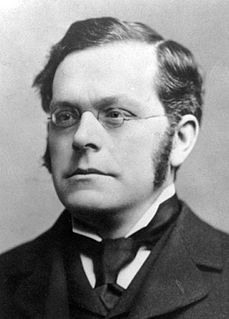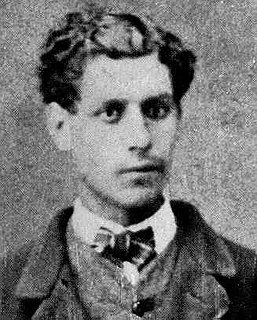A Quote by Christina Rossetti
A man is ever apt to contemplate himself out of all proportion to his surroundings.
Quote Topics
Related Quotes
Whoever is wise is apt to suspect and be diffident of himself, and upon that account is willing to "hearken unto counsel"; whereas the foolish man, being in proportion to his folly full of himself, and swallowed up in conceit, will seldom take any counsel but his own, and for that very reason, because it is his own.
There is a myth, sometimes widespread, that a person need only do inner work...that a man is entirely responsible for his own problems; and that to cure himself, he need only change himself....The fact is, a person is so formed by his surroundings, that his state of harmony depends entirely on his harmony with his surroundings.
Every man, in proportion to his virtue, considers himself, with respect to the great community of mankind, as the steward and guardian of their interests in the property which he chances to possess. Every man, in proportion to his wisdom, sees the manner in which it is his duty to employ the resources which the consent of mankind has intrusted to his discretion.
Take a young man from Gaza living in the most horrendous conditions - most of it imposed by Israel - who straps dynamite around himself and then throws himself into a crowd of Israelis. I've never condoned or agreed with it, but at least it is understandable as the desperate wish of a human being who feels himself being crowded out of life and all of his surroundings, who sees his fellow citizens, other Palestinians, his parents, sisters, and brothers, suffering, being injured, or being killed. He wants to do something, to strike back.
When I was twelve years old I thought up an odd trinity: namely, God the Father, God the Son, and God the Devil. My inference wasthat God, in contemplating himself, created the second person of the godhead; but that, in order to be able to contemplate himself, he had to contemplate, and thus to create, his opposite.--With this I began to do philosophy.
As Lucretius says: 'Thus ever from himself doth each man flee.' But what does he gain if he does not escape from himself? He ever follows himself and weighs upon himself as his own most burdensome companion. And so we ought to understand that what we struggle with is the fault, not of the places, but of ourselves
Solitude is the profoundest fact of the human condition. Man is the only being who knows he is alone, and the only one who seeks out another. His nature - if that word can be used in reference to man, who has ‘invented’ himself by saying ‘no’ to nature - consists in his longing to realize himself in another. Man is nostalgia and a search for communion. Therefore, when he is aware of himself he is aware of his lack of another, that is, of his solitude.







































